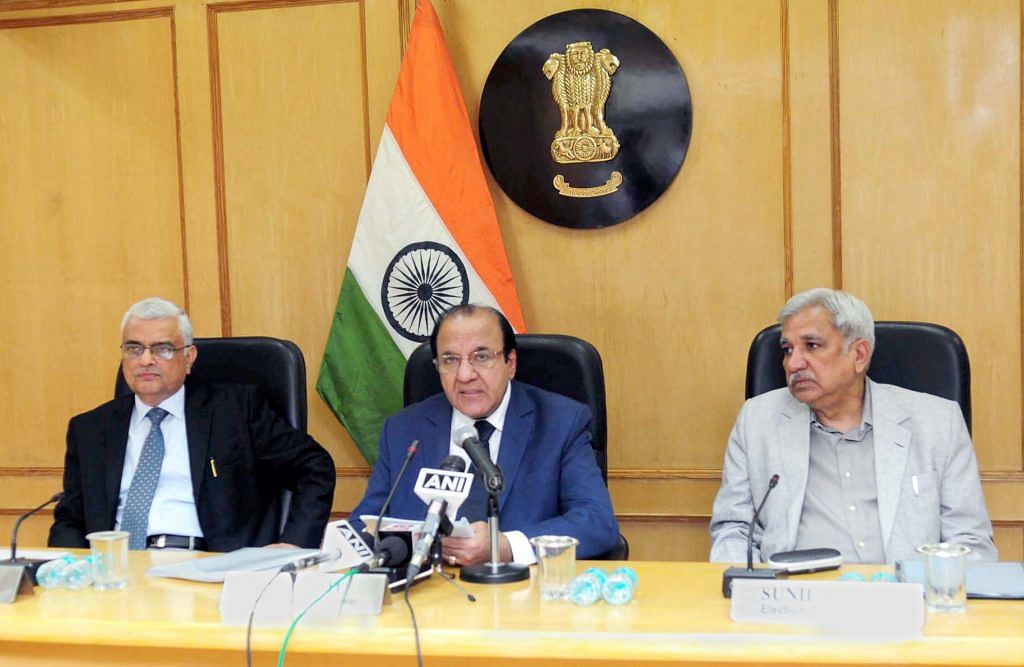The Print asks:
Should former IAS officers not head the Election Commission to ensure its independence?
It is time to think of institutional reforms in the Election Commission. Its lack of independence is not the only problem. Getting rid of IAS officers may not be the only solution.
Gujarat elections have once again highlighted the growing fragility of the Election Commission. The inexplicable delay in the declaration of a polling schedule, double standards in responding to media coverage of Rahul Gandhi, and BJP leaders accentuated the suspicion that the EC has been packed with loyal officers. This is the lowest point in the history of the Election Commission ever since its rebirth as an independent institution during the Seshan era.
Besides shrinking autonomy, the Election Commission also suffers from lack of professionalism. Over the last 25 years, EC’s functioning has been marked by pursuit of trivia, playing to the gallery, non-understanding of democratic politics, and inattention to larger issues of political reform. Like most Indian institutions, the EC does not understand the art of quiet yet firm regulation. It oscillates between spinelessness and knee-jerk over-reach.
Here are other sharp perspectives on the question:
S. Y. Quraishi, former Chief Election Commissioner
Maj Gen Anil Verma (retd), head, ADR India
Part of the problem lies with the quality of appointees. Though the law does not require so, in practice this is one more institution monopolised by ex-IAS officers. Today the EC faces new challenges for which it is professionally ill-equipped: production and supervision of EVMs, regulation of social media, checking of tax accounts of political parties, to mention a few. There is a case for lateral entry of professionals. At the Commission’s level, there is a case for broadening the selection pool to include officers from all the central services, retired judges and eminent persons from all walks of life, as with the Central Information Commission. But that’s hardly the solution. It would not be very hard to find pliable Commissioners from other services or even among ex-judges.
The method of appointment is more important. Under the Constitution, the appointment to the EC is the sole prerogative of the government. As the EC grew in authority, the governments of the day have learnt to keep ‘risky officers’ like Seshan and Lyngdoh out and if possible, put pliable ones in. Former CEC Naveen Chawla and the present CEC Jyoti clearly belong to the latter category. This method must be changed in line with recent institutions like the Lokpal. The selection committee must include the Leader of Opposition and the Chief Justice of India.
Final word: rigorous appointment procedure and good appointments are necessary but not sufficient for a good institution. Independent institutions need constant public monitoring and criticism. In that sense, the unfortunate controversy around the role of the EC in Gujarat may serve a good purpose.
Yogendra Yadav is the President of Swaraj India, a political party.
